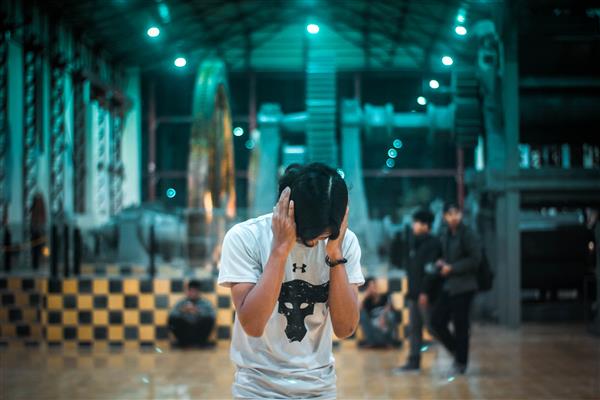May 21, 2019
by Patricia Tomasi

A new U.S. online survey conducted between April 4th and 8th, 2019, by the Harris Poll on behalf of MediaSource has found that 40 per cent of over 1200 women surveyed felt overwhelmed, depressed, or anxious following labor and that more than 25 per cent did not have a health care plan in place to cope with the "fourth trimester".
[More]
May 21, 2019
by Elizabeth Pratt

It is well established that we experience heightened emotions around events happening in the future. Now researchers have found we are likely to experience more envy towards a covetable event that has yet to occur than one that has already happened.
[More]
May 17, 2019
by Tina Arnoldi

Misophonia, a ‘hatred of sound’ is more common than most people realize, affecting approximately 15% of adults. But where can people go where there isn’t noise? Whether visiting a local restaurant or shopping at the grocery store, there is music playing or poor acoustics so it is not easy to find quiet.
[More]
May 15, 2019
by Elizabeth Pratt

A happy spouse won't just result in a longer marriage, now researchers have found it could also lengthen your life.
[More]
What is monkey chatter? The term has emerged from the practice of Zen Buddhism. It refers to the silent monologue that passes, mostly negative, judgment on an individual’s every action, thought, and perceived misstep. It is so automatic that it is not unusual for individuals to be unaware of the misery being dredged up by unconscious thoughts and beliefs.
[More]
May 14, 2019
by Kimberly Lucey

Obese children may be more likely to develop anxiety or depression than their peers, according to the results of studies done in Sweden, and the United Kingdom. Researchers in Sweden tracked more than 12,000 children being treated for obesity.
[More]
May 14, 2019
by Patricia Tomasi

A new study from the University of Waterloo, published in Scientific Reports, aimed to examine the way we learn to perceive the passage of time. Is time perception rigidly fixed in the brain, or is it flexible and open to change? If the latter, how rapidly can our brain adapt to changes in timing statistics?
[More]
May 7, 2019
by Patricia Tomasi

Traumatic experiences create long-lasting memories that can negatively impact our lives in a myriad of ways. A common treatment to overcome fear is called exposure therapy, or fear extinction, where patients are repeatedly confronted with the source of the fear. This typically is effective at dampening the fearful response, however, the original fear tends to relapse outside of the clinic, limiting the effectiveness of the treatment. Anthony F. Lacagnina and fellow researchers at the University of Texas at Austin wanted to know how the brain changes to adapt to extinction training, and what happens when relapse occurs.
[More]
May 3, 2019
by Tina Arnoldi

In mid-2018, the World Health Organization (WHO) released the 11th revision of its International Classification of Diseases (ICD-11), adding a disorder that’s of particular interest to gamers: gaming disorder. Earlier this year, Prince Harry wanted the popular game Fortnight banned in the U.K due to its addictive nature
[More]
April 30, 2019
by Kimberly Lucey

If your preschooler is already hooked to their iPad or television, scientists say it might be time to start thinking about safe screen time practices. A new study shows more time in front of the tube could be linked to significant behavioral problems.
[More]